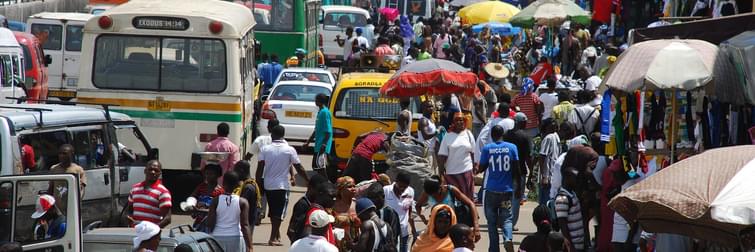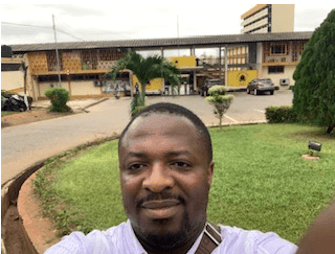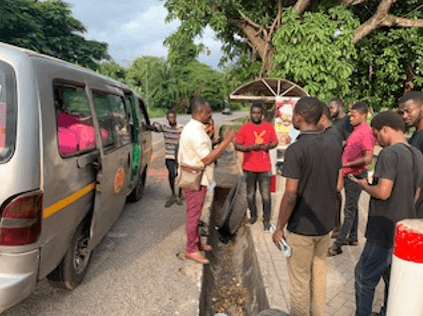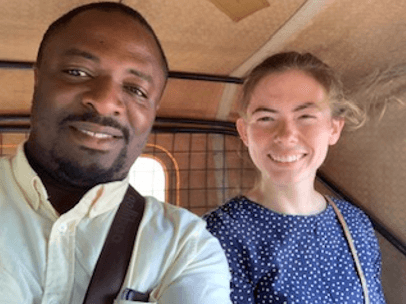
blog: Exploring transport accessibility in Ghana
Wednesday 8th January 2020
In 2019, ITP was appointed by The World Bank to explore the extent to which society's most deprived populations have access to transport services in my home country of Ghana, West Africa.
I was part of the project team that travelled to Kumasi, in southern Ghana, and Tamale, in the north, to assess the barriers that people faced when trying to access employment and key amenities.

I achieved my bachelor's degree at Kwame Nkrumah University of Science and Technology (KNUST) in Kumasi, so my involvement in this project had a lot of significance to me and it was great to re-visit the area. As part of the project, I took part in focus groups at the KNUST campus in Kumasi, where a lot had changed since my last visit. Having spent most of my academic life in the southern part of Ghana, I’ve always had the perception that the standard of living was extremely poor in the northern part of Ghana. The use of personal cars as a main means of transport has been the symbol of a high status in society, especially in the southern part of the country.

A recent news report in Ghana showed a member of parliament who protested a recent increase in fuel prices by riding a bicycle to parliament.
I am of the current view that more could be invested into changing this incorrect perception of the society regarding the use of more sustainable transport, which is currently viewed by natives as a transport mode for the poor.
With the current increase of the middle-income class in society, Ghana has seen an influx of imported vehicles into the country, which has culminated in serious traffic congestion in most major cities in the south, caused by the uptake of the increased ownership of the private car.
The northern part of Ghana, with Tamale as the regional capital, has been associated with the use of bicycles and motorcycles as the main mode of transport for as far as I can remember. The use of such modes of transport were associated with poverty in the region. However, my visit during our second focus group changed my personal perception.
During my visit to the northern region, I observed the massive extent at which the general society used bicycles and motorcycles. Dedicated lanes have been provided to segregate the use of the two- and three-wheelers from the main stream of traffic.
In recent times, three-wheeler taxis have been introduced, providing a cheaper alternative to the traditional taxis. In a city with few intra-city bus routes, they now make up the majority of vehicles on the road.

Tamale has undergone a lot of urbanisation and it is obvious that the use of these sustainable means of transport have provided a helping hand in the effort to reduce congestion caused by the increased uptake of private vehicles.
Our analysis of both cities on this project will lead us to make high-level recommendations for improving transport systems in Ghana. It is hoped that the findings from this study will help to enhance the system’s functionalities in the most economically challenged regions in the country and the day-to-day lives of the poorest people.
ITP has undertaken various transport projects across Africa. We collaborate with both governmental and non-governmental agencies to undertake studies that help to establish the objective of improving sustainable transport systems in developing countries. If you'd like to find out more about other work that we've been involved with overseas, browse our website.
